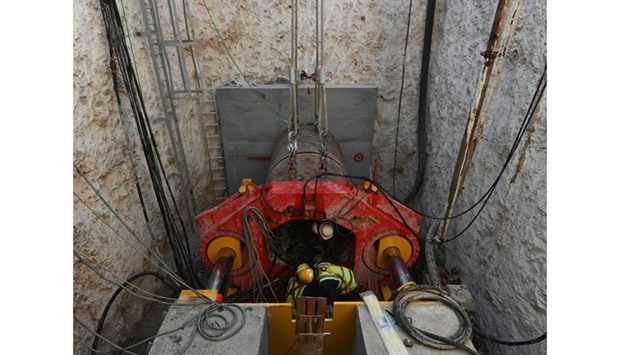The Public Works Authority (Ashghal) announced the completion of works on an 11-kilometer-long foul sewer network in Al Kheesa and Rawdat Al Hamama Areas by implementing 30-meter-deep lines to accommodate flows connecting adjacent networks in Wadi Al Banat, Al Ebb and Lusail Areas. This newly constructed network is part of foul sewer infrastructure development works in areas North of Doha.
Upgrading works within the project included installing foul sewer lines stretching from Zekreet Street to Merigeel Street via Street 999, to collect foul flows, facilitate their discharge and provide well-developed sewer connections to replace the traditional septic tanks.

On this occasion, Eng. Abdulla Al Nuaimi, Project Manager in the Roads Projects Department, said: "Completed works within the project serves several areas witnessing a significant urban growth as it collects the sewage of other existing projects in the area. It will also improve the quality of life as well as the health and environmental conditions in the area." And on the scope of works, Eng. Al Nuaimi explained that it contained a total of 11 km of foul sewer network lines that involved 6.5 km of micro tunneling works and 4.5 km of shallow foul sewer lines, in addition to 154 square meters of interlock installation works.
Eng. Al Nuaimi also pointed out that the project comes as part of Ashghal's commitment to solve sewerage-related issues in these areas by providing a deep sewer line executed via micro tunneling technique to transfer flows to the main treatment plant in the area through the existing main trunk line. This line was installed at a depth ranging from 15 to 30 meters.
The project engineer has also explained the challenges faced by the project, among which the high level of ground water which required using pumps to drain water permanently after conducting a study to find the best solutions to drain this water before starting construction works. In addition to that, implementing 30-meter-deep excavation manholes work for the foul sewer network required raising security measures by increasing safety audits and employing safety tools to ensure workers security in deep excavation works as well as increasing the number of workers and machines to accelerate the progress of works. Micro tunneling technique was also employed as part of the works which is a machine that is not visible to the public to attenuate construction secondary effects on the residents and ensure fast and precise implementation.

